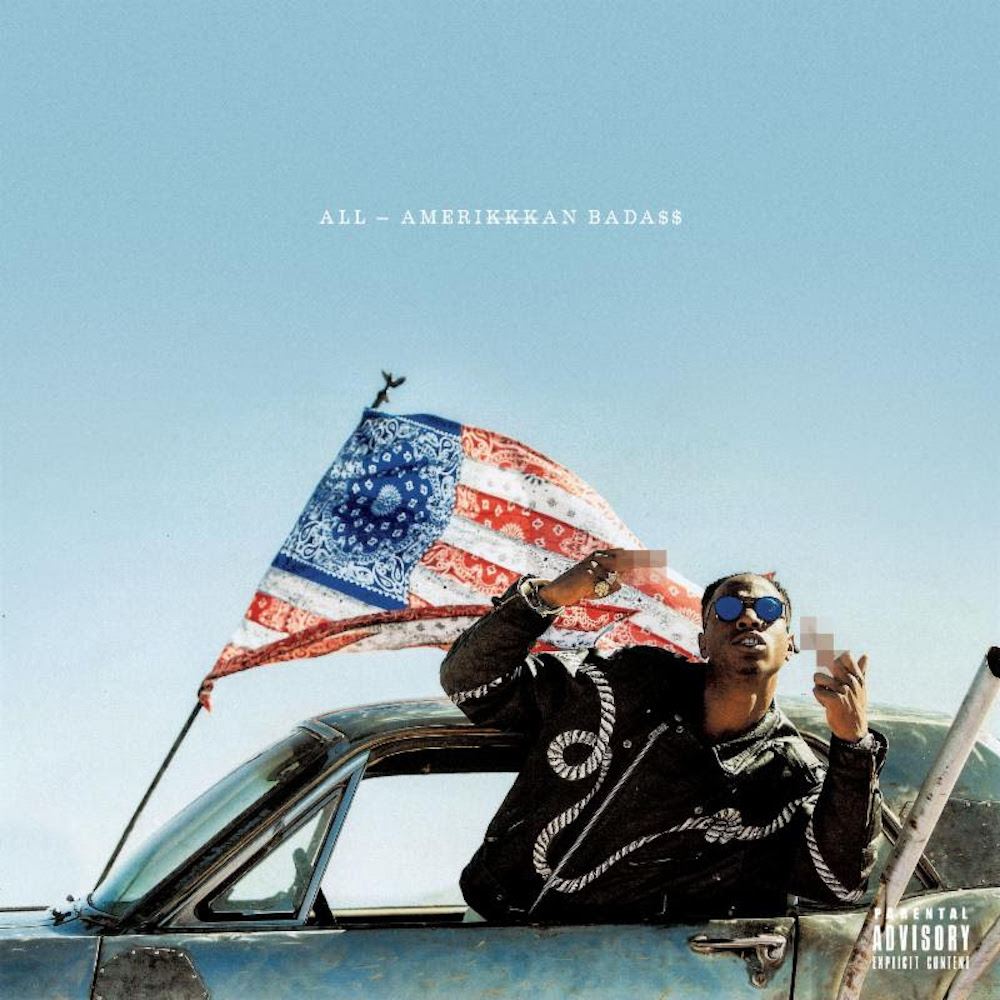At this point, it’s normal to read an artist’s attempt to lean into political consciousness with skepticism, but Joey Bada$$’ specifically worded social critiques shouldn’t be treated with that kind of cynicism. On their breakout 2012 single “Survival Tactics,” Joey and his Pro Era cohort Capital STEEZ warned us that the men in power are no good, STEEZ summing up their effect on black youth in a few conclusive, elliptical bars: “Half our students fallen victim to the institution / Jobs are scarce since the Scientific Revolution / Little kids are shootin’ Uzi’s ’cause it’s given to ’em.”
When Joey echoes those observations throughout his sophomore album All-Amerikkkan Bada$$—which comes at an even more dire time—he’s looking at the chickens coming home to roost. His new record, released on anniversary of STEEZ’s lone mixtape AmeriKKKan Korruption, stands out in Joey’s catalog not just because of its overt socio-political context, but how it’s buttressed by his growth. The nostalgia-caked, Biggie-saluting boom-bap that directed eyes on Joey quickly became a ceiling—his debut B4.DA.$$ was covered in Coogi and diluted in perspective. The golden age retroactivity also seemed to extend past the recording booth: He not only called out Rich Homie Quan for not remembering the lyrics in his VH1 Hip-Hop Honors Biggie tribute, but claimed it was “everything that’s wrong with hip hop.”
The Joey of 2017 proudly proclaims Lil Uzi Vert’s “XO TOUR Llif3” song of the year and will call out Hot 97, New York City’s notoriously saditty old guard, for refusing to meld with hip-hop’s dominant youth culture. In that interview, Joey speaks pointedly with a sagacious calm—a tone that permeates All-Amerikkkan Bada$$$, the first Joey project where his adulation of ’90s hip-hop feels like a tertiary storyline. Album title allusions aside, All-Amerikkkan works with the understanding that one’s place in a cultural lineage isn’t simply uttered—it’s inherent within a shared experience.
“LAND OF THE FREE,” the album’s thesis, exemplifies that relationship. Biggie’s ghost appears once again, this time through the Mtume-reminiscent drum patterns, but the instant recognition doesn’t supplant how it gives Joey’s performance an added swing. The song also marks the rapper’s improvement as a writer–he’s been skilled at throwing together tautly wrapped internal rhymes, but witticisms like “Sorry America, but I will not be your soldier / Obama just wasn’t enough, I just need some more closure” are newly chiseled gems. That specificity also bolsters “Y DON’T YOU LOVE ME (MISS AMERIKKKA),” a rumination on America’s hatred of black skin (“Locked in the cycle, tryna break the chains / Handcuffs so tight, nearly slit my veins”).
It’s clear that Joey has become confident, largely abandoning his throaty modulations and patois bends for plainspeak. This straightforwardness makes him a versatile collaborator. “ROCKABYE BABY,” produced by 1-900 and Pro Era’s Chuck Strangers, finds Joey meeting ScHoolboy Q in what could’ve been a Blank Face LP bonus track; over the smoked-out jazz, Joey’s nutty phrasings meshes with a Styles P’s bluesmanship (“I’m a real nigga, it’s not a lot of ’em / If they were, then the cops probably shot at ’em”). With production that shares 2014 Forest Hills Drive’s soul, except with added verve and urgency, All-Amerikkkan Bada$$ manages to find a balance between necessary gravity and inviting wistfulness. The message can be preachy, but the pace is conversational.
All-Amerikkkan Bada$$ also attempts to make an arguments for Joey the Hitmaker. While the two obvious tries “DEVASTATED” and “FOR MY PEOPLE” seek to uplift, they’re also the album’s most tepid cuts. And there’s the much-hyped collaboration with J. Cole, “LEGENDARY,” which falls flat because Cole still struggles to rhyme past platitudes–“Am I wrongin’ the ones that love me the most?” isn’t just a bad line because it’s a cliche, but because it’s genuinely difficult to believe that J. Cole is capable of hurting people.
The misses are inoffensive, though, and don’t cloud an album that repositions Joey from a staunch defender of a grayed aesthetic to a person trying to reconcile newfound consciousness with his fatalistic surroundings. Before he closes the album with a stream-of-conscious screed against America’s war on blackness on “AMERIKKKAN IDOL,” he chants “Got to fill this void, I got to be the voice.” All-Amerikkkan Bada$$ is a convincing attempt.





